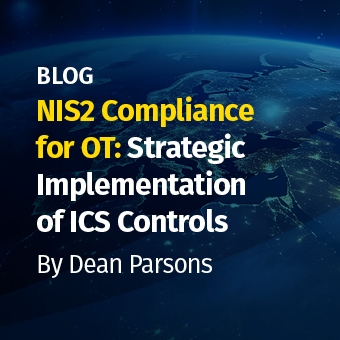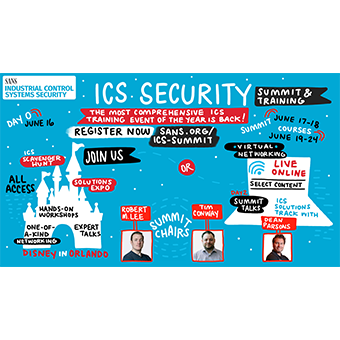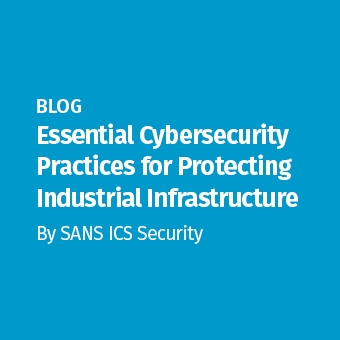I looked at the S4 Europe agenda which was sent out this morning by Dale Peterson and saw an interesting bullet: "Rob Caldwell of Mandiant will unveil some ICS malware in the wild that is doing some new and smarter things to attack ICS. We are working with Mandiant to provide a bit more info on this in early May without doing the big reveal until S4xEurope."
For those of you that don't know, S4 is a conference run by Dale Peterson and this is their European debut (the other versions are in Florida and Japan and are staples of the ICS security conference scene always having hard hitting and top notch presentations). As a trusted conference, S4, and friend, Dale, I give a higher bit of credibility to anything that comes out of there than your typical conference. Add that to the fact that the Mandiant ICS team has a number of extremely credible voices (Rob Caldwell, Dan Scali, Chris Sistrunk, Mark Heard, etc.) this is even more interesting and credible.
Let's break down what we know and why this is potentially very important.
Background on ICS Tailored Malware
To date there have been exactly three ICS tailored malware families that are publicly known. The first was Stuxnet which contained modules to target the Siemens' systems at the Natanz facility in Iran and cause physical damage to the P-1 centrifuges. Second, there was the Havex malware used in the Dragonfly campaign (aliases include Energetic Bear and Crouching Yeti) that had a module that specifically searched for ICS specific ports (such as 102, 502, and 44818) and later more importantly an OPC module. Lastly, there was the BlackEnergy 2 malware which contained exploits and versions for GE's CIMPLICITY and Siemens' SIMATIC environments.
Why Haven't We Seen More?
Most of us understand that ICS environments make for great targets especially for nation-state and APT styled actors. The ability for military posturing, political leverage, espionage, and even intellectual property theft make enticing targets. Yet, the numbers simply do not seem to align with the fear that many folks have about these environments being targeted. The question always comes up: why don't see more ICS intrusions? I do not claim to know for sure but my running hypothesis is that it boils down primarily to three areas:
- We do not have a lot of visibility into ICS networks. Many of the threats that we are aware of we know about due to vendors releasing reports. These vendors traditionally have end point security solutions and anti-virus in the networks that report back information to them. This allows the vendors to "see" tens of thousands of networks and the threats targeting them. In ICS we do not have these same products in scale and many are disconnected from the vendors (which is ok by the way and sometimes preferable). That combined with a lack of understanding of how to monitor these environments safely and interact with them creates a scenario where we don't see much. Or in short, we aren't looking.
- Most malware families tend to be criminal in nature. APT styled malware is not as common in the larger security field. There simply isn't as big of a motivation for criminals to make ICS specific malware families when ransomware, botnets, etc. work just as effectively in these environments anyway and they represent a smaller portion of the population. This is similar to the old Mac vs. Windows vs. Linux malware debate. One of the reasons we see more Windows malware is due to pure numbers and not because it's less secure. There is more motive for criminals to write Windows based malware usually. For the APT styled actors, targeting ICS can be important for military and intelligence purposes but there isn't as much motive to actually attack or bring down infrastructure outside of conflict scenarios; just to learn and position. I have my suspicions that there are a great number of ICS networks compromised with a large variety of ICS specific malware out there and we just haven't seen the impacts to begin looking (see point #1).
- ICS specific knowledge sets are rarer making it more difficult to create well-crafted and tailored ICS modules. The typical "cyber team" for nation-states are pretty good at Windows based environments but down in the lower ICS networks it requires system specific knowledge and engineering skills to truly craft something meaningful. This knowledge set is expanding though meaning we will definitely see more and more of these types of threats in the future.
Why is the Mandiant Discovery Potentially Important?
The claim that Mandiant has found a new ICS tailored piece of malware is important for a few reasons.
First, I have a good amount of respect for the Mandiant ICS team and if they say they've found something ICS specific I'll still require proof when the time comes but I'm more inclined to believe them. Knowing the team members though I'm confident they'll release things like indicators of compromise (IoCs) and technical knowledge so that the community can independently verify the find. This is great because many times there are claims made, even by trusted companies, without any proof offered. My general stance is that no matter how trusted the company is if there isn't proof (for example the recent Verizon claim about the water hack) then it simply does not count. The community has been abused a lot with false claims and proof is required for such important topics.
Second, given that there have only been three ICS tailored malware families to have a fourth is incredibly interesting for the research both into the defense of ICS but also into the threat landscape. Understanding how the intrusions took place, what the targets were, and extracting lessons learned will be very valuable to both the technical and culture challenges in this space. It remains to be seen exactly what Mandiant means by "ICS specific" although I have messaged some trusted contacts and have been told that the agenda point isn't a misprint; Mandiant claims to have found tailored ICS malware and not just an ICS themed phishing email or something less significant. Although I never wish harm on anyone from a threat and defense research perspective this is an amazing find.
Third, it bodes well for the ICS security industry as a whole to start making some more positive changes. There have been many ICS security companies around for years (security and incident response teams like LoftyPerch, independent consultants and contractors, red teams like Red Tiger Security, etc.) and even some dabbling by larger companies like Kaspersky and Trend Micro (who both have contributed amazing information on the ICS threat landscape). But the Mandiant ICS team in a way represents a first in the community. Mandiant, and its parent company FireEye, is a huge player in the security community. For years the Mandiant team itself has been widely respected for their incident response expertise. To have them come out and make a specific ICS team to focus on incident response was actually a big risk. It is common to see ICS products and services but many of the startups struggle much more than the media and venture capitalists would let on. Mandiant's ICS play was a hope that the market would respond. To have the team come out with a fourth specific ICS tailored malware family bodes very well for the risk they took and with the appropriate coverage while keeping down hype this could be very important for the industry and market writ large. Of course the customers always get a big vote in this area but it could mean more folks waking up to the fact that yes ICS represent a target and yes the security community can calmly and maturely approach the problem and add value (again, please no hype, wallpapers, and fancy logos though for exploits and malware).
But Aren't Squirrels More Damaging to the Grid?
I gave an interview to a journalist for a larger piece on squirrels and cyber threats with regards to the power grid and I believe it warrants a discussion in this piece's context. The common joke in the community is that squirrels have done more damage to power grids than the US, China, Iran, Russia, UK, etc. combined. And it's true. It is often stated by us in the industry to remind folks that the "OMG Cyber!" needs to calm down a bit and realize that infrastructure operators on a daily basis deal more with squirrels and Conficker than APT styled malware. However, we should not equate the probability of attacks with the importance of them. As an example, let's consider the recent DHS and FBI report on the risk to the U.S. electrical infrastructure.
I have a lot of love and respect for many of the FBI and ICS-CERT personnel I've worked with. I can only describe most of them as extremely passionate and hard working. But, the claim that the risk of a cyber attack against U.S. electrical infrastructure was low was upsetting to me because of how it comes across. On the heels of the cyber attack that impacted the Ukrainian power grid the report seemed to downplay the risk to the U.S. community. It stood in direct contrast to Cyber Command's Admiral Rogers who stated that "It is only a matter of the when, not the if we're going to see a nation-state, group, or actor engage in destructive behavior against critical infrastructure in the United States." He was specifically talking in context of what happened in Ukraine and the importance of it. As the head of both the NSA and the U.S. military arm for cyber it is appropriate for Admiral Rogers to have a good understanding of the foreign intelligence and foreign military threat landscape. For the DHS and FBI to contradict him, even if unintentionally, seems very misplaced in what their expertise and mission is; and this leads back to the squirrel comment.
It is not as important to think of probability with regards to destructive attacks and ICS focused intelligence operations. When a community hears of a "low probability" event they naturally prioritize it under other more high probability events. As an example, prioritizing squirrels over nation-state operations based on probability. The problem with doing that though is that the impact is so much more severe for this "lower probability" scenario that the nation must prioritize it for national security reasons. Telling the infrastructure operators, who really defend the grid not the government, to stay calm and carry on is directly competing with that need although the message should admittedly always avoid hype and alarmism. Mandiant coming out with the fourth variety of ICS tailored malware helps highlight this at a critical point in the debate both among infrastructure operators and policy makers.
Conclusion and What to Do
We won't know exactly what the ICS tailored malware is, what it's doing, or technical knowledge of it until Mandiant releases it. It could be a dud or it could be extremely important (knowing the Mandiant team my bet is on extremely important but let's all remain patient for the details before claiming it to be so). However, infrastructure owners and operators do not need to wait for the technical details to be released. It is important to be doing industry best practices now including things such as network security monitoring internal to the ICS. The other three samples of ICS tailored malware were all incredibly easy to identify by folks who were looking. Students in my SANS ICS515 ICS Active Defense and Incident Response class (shameless plug) all gets hands on with these threats and are often surprised at how easy they are to identify in logs and network traffic. The trick is simply to get access to the ICS and start looking. Or in other words: you too can succeed. Defense is doable. So do not feel you need to wait for the Mandiant report. It is potentially very important and technical details will help hunt the threats but you can look now and maybe you'll spot it, something else, or at the very least you'll get familiar with the networks you should be defending so that it's easier to spot something in the future whether its APT styled malware or just misconfigured devices. Either way - the most important ICS is your ICS and learning it will return huge value to you.
Robert M. Lee is the course author of ICS515 - Active Defense and Incident Response and the lead author of FOR578 - Cyber Threat Intelligence. He is also the Founder, CEO of Dragos Security and gained his start in cyber security in the U.S. Intelligence Community as a Cyber Warfare Operations officer. He may be found on Twitter @RobertMLee





